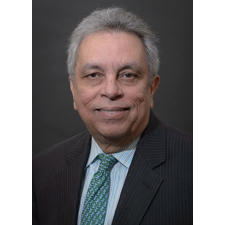Company description
Javier Roca, MD, specializes in hematology and oncology. Based in Queens, NY, Dr. Roca also sees patients at the Northwell Cancer Institute in Long Island. Dr. Roca is an assistant professor at the Donald and Barbara Zucker School of Medicine at Hofstra/Northwell. Dr. Roca was drawn to medicine because his father was a physician. He enjoys the challenge of hematology and oncology. “It’s a tough field,” he says. Board certified in hematology, Dr. Roca received his medical degree from the University of Panama. He completed his residency at St. John’s Episcopal Hospital in Queens and fellowships at the Albert Einstein College of Medicine and Montefiore Medical Center Moses Division. The group of hematologists and oncologists Dr. Roca works with is culturally diverse, reflecting the diversity of the Queens community they serve. “All the physicians I work with have different backgrounds,” including native speakers of Chinese, Hindi, Russian, and Korean, he says. As a Latin physician, Dr. Roca can speak to patients in Spanish and be in tune with cultural nuances. “It’s very satisfying that I’m able to connect with my patients culturally,” Dr. Roca says. “I can relate to them, or they can relate to me, in both language and customs.” Dr. Roca’s support team includes physician assistants, medical assistants, and nurses. “Our support team has always been magnificent,” he says. Dr. Roca is excited about advances being made at the molecular level to better understand why certain cancers occur. “That’s what excites me about this field,” he says. “Now things are changing spectacularly. The more that we learn, the more we can apply this knowledge, so we can get better treatments for our patients.”

